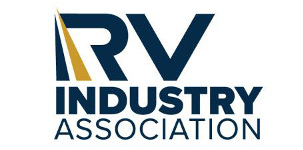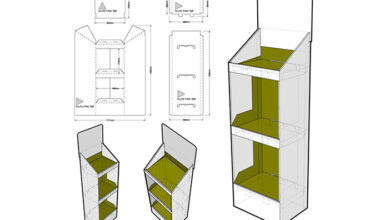Biden-Harris Administration Addresses De Minimis Shipments

The following is a News & Insights report from the RV Industry Association (RVIA).
In a move aimed at protecting American consumers, workers and businesses, the Biden-Harris Administration has announced new actions targeting de minimis shipments — small, low-value imports that often evade tariffs and regulatory scrutiny. The administration’s goal is to address concerns about unsafe products and unfair trade practices that have impacted various U.S. industries, including the RV aftermarket sector.
Under the de minimis rule, goods valued at $800 or less can enter the U.S. without facing tariffs or rigorous inspections. This provision, originally designed to expedite small, low-risk imports, has been increasingly exploited by foreign manufacturers, particularly in countries like China, to ship large quantities of goods without oversight. Many of these products are seen as undermining U.S. businesses by avoiding safety standards and circumventing tariffs, posing a risk to both consumers and American manufacturers.
The new measures will strengthen enforcement against de minimis shipments that include unsafe or noncompliant products. The administration is also working to close loopholes that allow companies to misuse the de minimis threshold to gain an unfair advantage over domestic industries. Key actions being taken are:
- Precluding Products Subject to Section 301 Tariffs from De Minimis Eligibility: One of the major actions is excluding products that are subject to Section 301 tariffs from being eligible for de minimis treatment. These tariffs are primarily applied to goods from China in response to unfair trade practices. By removing this exemption, the administration ensures that products subject to these tariffs can no longer bypass them by being shipped under the de minimis rule, closing a loophole that has undermined the effectiveness of U.S. trade policies.
- Targeting Unsafe and Noncompliant Products: The administration is cracking down on de minimis shipments that fail to meet U.S. safety standards or other regulatory requirements. This effort will protect consumers from potentially harmful products entering the market without proper oversight, while also holding foreign companies accountable for meeting U.S. regulations.
- Improving Enforcement of Customs Laws: Customs and Border Protection (CBP) is being tasked with enhancing its enforcement capabilities, ensuring that de minimis shipments are properly scrutinized for compliance with U.S. laws. This includes ramping up inspections and tightening the process for assessing shipments to ensure that they meet all necessary standards.
- Closing Loopholes in the De Minimis Threshold: The administration is also looking at closing loopholes in how the de minimis threshold is applied. This includes addressing situations where large volumes of goods are split into smaller shipments to avoid tariffs and oversight, which has been a growing issue, particularly with products coming from China.
For the RV industry, these changes could be significant. With foreign competition rising in sectors such as RV parts and accessories, the stricter enforcement of de minimis rules may help level the playing field for U.S. manufacturers, ensuring that imported products meet the same safety standards and trade regulations as those made domestically. Additionally, cracking down on tariff avoidance can help support American jobs in the RV manufacturing and supply chain, fostering growth in this critical sector of the outdoor recreation economy.
The New York Times ran a piece on Friday highlighting de minimis and the state of play in Washington, D.C. The article included a quote from RV Industry Association member Mike Hesse, CEO of Blue Ox:
Mike Hesse, the chief executive of Blue Ox, a Nebraska manufacturer of tow bars and other equipment for recreational vehicles, said his company was proud its products were American made. But he said the tariff exemption was helping Chinese copycat versions of his products enter the country cheaply through Amazon, damaging his brand and risking consumers’ safety.
“You’re talking about these 45-foot motor homes towing 10,000-pound vehicles,” he said. “They’re a safety issue, plus the consumer is being duped into thinking they’re buying an American-made product. That’s how de minimis is affecting me.”
While the full impact of the administration’s actions will take time to unfold, industry leaders are optimistic that these measures will curb unfair trade practices and enhance the competitiveness of American-made products in the marketplace. For more information, please contact Samantha Rocci, director of federal affairs at srocci@rvia.org.



